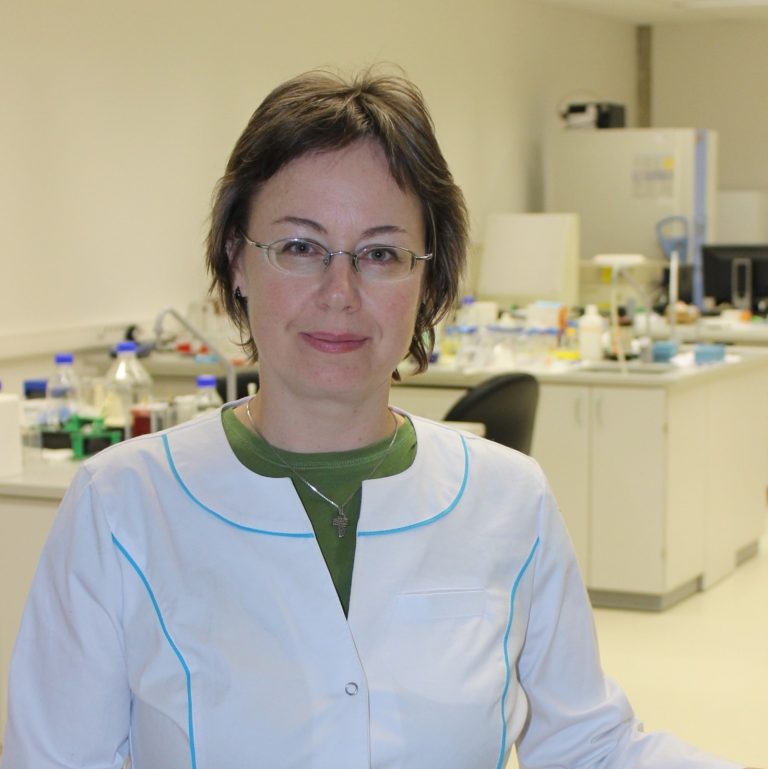Viral upper respiratory tract infections induce airway cell exosomes containing viral genetic material and immune response-related inflammatory factors. Exosomes can easily cross biological barriers including blood-brain barrier and thus, transmit the inflammatory signal to brain. The study investigates whether exosomes from virus mimetic TLR-3 agonist poly I:C-affected airway cell exosomes can enter brain, how they interact with neurons, astrocytes and microglia, and how energetic metabolism and inflammatory response machinery of microglial cells respond to the virus mimetic-primed and not primed airway epithelium exosomes.
Aiste Jekabsone is a senior scientist in the Laboratory of Preclinical Drug Investigation of the Institute of Cardiology, Lithuanian University of Health Sciences (LSMU, Kaunas, Lithuania). She has MSc in Molecular Biology and Biotechnology from Vytautas Magnus University and PhD in Biomedical science from Lithuanian University of Health Sciences (2002), where she investigated cell death pathways in ischemic myocardium. As a Postdoc fellow at the University of Cambridge (UK), Biochemistry department, she was working on nitric oxide signalling pathways in stroke models and investigated the role of microglial cells in Alzheimer’s disease. She currently focusses on designing of exosome-based technologies for drug delivery and regeneration as well as organotypic in vitro models for drug efficacy – toxicity screening.



